Comparative analysis: sustainable fashion vs. fast fashion
DOI :
https://doi.org/10.34069/AI/2024.77.05.1Mots-clés :
Sustainable development, fast fashion, slow fashion, sustainable fashion, clothing, apparel industry.Résumé
Sustainable fashion is a philosophy centered on the ethical and environmentally responsible production of garments. However, currently prevailing in the market is a model known as fast fashion, which is characterized by mass production of low-quality garments at affordable prices. In this context, our article presents a comparative analysis between sustainable fashion and fast fashion, highlighting how these models represent two divergent approaches in the fashion industry. Overall, this work aims to contribute to the literature by exploring the differences, challenges, and advancements in the development of both trends. The study examines production speed, material usage, working conditions, and environmental awareness, developing a conceptual framework that provides an overview of the complexity of the fashion industry and its potential direction in terms of sustainability and responsible consumption.
Téléchargements
Références
Aakko, M., & Koskennurmi-Sivonen, R. (2013). Designing sustainable fashion: Possibilities and challenges. Research Journal of Textile and Apparel, 17(1), 13-22. https://doi.org/10.1108/RJTA-17-01-2013-B002
Abbas, S., Chiang Hsieh, L. H., Techato, K., & Taweekun, J. (2020). Sustainable production using a resource–energy–water nexus for the Pakistani textile industry. Journal of Cleaner Production, 271, 122633. https://doi.org/10.1016/j.jclepro.2020.122633
Barahona, M. (2018). Análisis del fast fashion como generador de patrones de consumo insostenibles. (Bachelor's thesis), Fundación Universidad de América.
Bhardwaj, V., & Fairhurst, A. (2010). Fast fashion: response to changes in the fashion industry. The International Review of Retail, Distribution and Consumer Research, 20(1), 165-173. https://doi.org/10.1080/09593960903498300
Bilotte, J. (2021). E-Duration: marca de Ropa de moda sustentable. Universidad de San Andrés. Escuela de Negocios. http://hdl.handle.net/10908/23022
Blum, P. (2021). Moda circular. Blume.
Brewer, M. K. (2019). Slow fashion in a fast fashion world: Promoting sustainability and responsibility. Laws, 8(4), 24. https://doi.org/10.3390/laws8040024
Bruce, M., & Daly, L. (2006). Buyer behaviour for fast fashion. Journal of Fashion Marketing and Management, 10(3), 329-344. https://doi.org/10.1108/13612020610679303
Brydges, T. (2021). Closing the loop on take, make, waste: Investigating circular economy practices in the Swedish fashion industry. Journal of Cleaner Production, 293. https://doi.org/10.1016/j.jclepro.2021.126245
Carey, L., & Cervellon, M.-C. (2014). Ethical fashion dimensions: pictorial and auditory depictions through three cultural perspectives. Journal of Fashion Marketing and Management, 18(4), 483-506. https://doi.org/10.1108/JFMM-11-2012-0067
Cesar da Silva, P., Cardoso de Oliveira Neto, G., Ferreira Correia, J. M., & Pujol Tucci, H. N. (2021). Evaluation of economic, environmental, and operational performance of the adoption of cleaner production: Survey in large textile industries. Journal of Cleaner Production, 278. https://doi.org/10.1016/j.jclepro.2020.123855
Cordenons, N., & Verri, M. (2016). La dimensión económica, social y ambiental en los sistemas de la moda. In VIII Jornadas de Investigación en Disciplinas Artísticas y Proyectuales. Facultad de Bellas Artes. http://sedici.unlp.edu.ar/handle/10915/57242
Diabat, A., Kannan, D., & Mathiyazhagan, K. (2014). Analysis of enablers for implementation of sustainable supply chain management – A textile case. Journal of Cleaner Production, 83, 391-403. https://doi.org/10.1016/j.jclepro.2014.06.081
Domingos, M., Vale, V.T., & Faria, S. (2022). Slow Fashion Consumer Behavior: A Literature Review. Sustainability, 14, 2860. https://doi.org/10.3390/su14052860
Ekström, K. M., & Salomonson, N. (2014). Reuse and recycling of clothing and textiles—A network approach. Journal of Macromarketing, 34(3), 383-399. https://doi.org/10.1177/0276146714529658
Fletcher, K. (2010). Slow Fashion: An Invitation for Systems Change. Fashion Practice, 2(2), 259-265. https://doi.org/10.2752/175693810X12774625387594
García-Huguet, L. (2021). La comunicación online de la RSC en materia medioambiental. El caso de las empresas de moda rápida y moda lenta. Fonseca, Journal of Communication, (22). https://doi.org/10.14201/fjc-v22-22664
Godley, A. (1997). The Development of the Clothing Industry: Technology and Fashion. Textile History, 28(1), 3-10, https://doi.org/10.1179/004049697793711067
Gutiérrez, Q. (2023). Fast Fashion: ¿Moda Rápida o Rápido Desperdicio? Sostenible o sustentable. Recuperado de: https://acortar.link/ukkyX4
Haug, A., & Busch, J. (2015). Towards an Ethical Fashion Framework. Fashion Theory, 20(3), 317-339. https://doi.org/10.1080/1362704x.2015.1082295
Henninger, C., Alevizou, P., Oates, C., & Cheng, R. (2015). Sustainable Supply Chain Management in the Slow-Fashion Industry. In: Choi, TM., Cheng, T. (eds) Sustainable Fashion Supply Chain Management. Springer Series in Supply Chain Management, vol 1. Cham: Springer. https://doi.org/10.1007/978-3-319-12703-3_7
Iwanow, H., McEachern, M.G., & Jeffrey, A. (2005). The influence of ethical trading policies on consumer apparel purchase decisions: A focus on The Gap Inc. International Journal of Retail & Distribution Management, 33(5), 371-387. https://doi.org/10.1108/09590550510596740
Jacobs, K., Petersen, L., Hörisch, J., & Battenfeld, D. (2018). Green thinking but thoughtless buying? An empirical extension of the value-attitude-behaviour hierarchy in sustainable clothing. Journal of Cleaner Production, 203, 1155-1169. https://doi.org/10.1016/j.jclepro.2018.07.320
Jacometti, V. (2019). Circular Economy and Waste in the Fashion Industry. Laws, 8(4), 27. https://doi.org/10.3390/laws8040027
Joy, A., Sherry Jr, J. F., Venkatesh, A., Wang, J., & Chan, R. (2012). Fast fashion, sustainability, and the ethical appeal of luxury brands. Fashion theory, 16(3), 273-295. https://doi.org/10.2752/175174112X13340749707123
Jung, S., & Jin, B. (2014). A theoretical investigation of slow fashion: sustainable future of the apparel industry. International journal of consumer studies, 38(5), 510-519. https://doi.org/10.1111/ijcs.12127
Kamis, A., Suhairom, N., Jamaluddin, R., Syamwil, R., & Ahmad Puad, F. (2018). Environmentally sustainable apparel: recycle, repairing and reuse apparel. The International Journal of Social Sciences and Humanities Invention, 5(1), 4249-4257.
Lahoda, O., Tokar, M., Hurdina, V., Bondarenko, B., & Ieremenko, I. (2023). Ecodiseño e iniciativas de desarrollo sostenible en la dimensión de la pasión de la creatividad artística y del diseño. Amazonia Investiga, 12(65), 212-218. https://doi.org/10.34069/AI/2023.65.05.20
Lang, C., Armstrong, C.M., & Liu, C. (2016) Creativity and sustainable apparel retail models: does consumers’ tendency for creative choice counter-conformity matter in sustainability? Fash Text, 3, 24. https://doi.org/10.1186/s40691-016-0076-7
Linden, A. (2016). An Analysis of the Fast Fashion Industry. Senior Projects Fall 2016. 30. https://digitalcommons.bard.edu/senproj_f2016/30
Lobo, D. (2022). Fast fashion y el cambio climático: la importancia de adoptar un modelo sostenible. (Trabajo de Grado), Universidad Pontificia. http://hdl.handle.net/11531/57059
López Barrios, M. C. (2014). El futuro que queremos y las incidencias de la Fast Fashion. Revista Arte & Diseño, 10(1), 29-33. https://doi.org/10.15665/ad.v10i1.194
Mair, S., Druckman, A., & Jackson, T. (2016). Global inequities and emissions in Western European textiles and clothing consumption. Journal of Cleaner Production, 132. https://doi.org/10.1016/j.jclepro.2015.08.082
Marín, C. V., & Monroy, B. G. (2013). Fibras textiles naturales sustentables y nuevos hábitos de consumo. Revista Legado de Arquitectura y Diseño, (13), 31-45.
Morris, M., & Barnes, J. (2009). Globalization, the changed global dynamics of the clothing and textile value chains and the impact on Sub Saharan Africa. UNIDO Research and Statistics Branch Working Paper, 10.
Muthu, S. S. (Ed.). (2017). Sustainable fibres and textiles. Woodhead Publishing.
Niinimäki, K. (2015). Ethical foundations in sustainable fashion. Textiles and Clothing Sustainability, 1. https://doi.org/10.1186/s40689-015-0002-1
Niinimäki, K., Peters, G., Dahlbo, H., Perry, P., Rissanen, T., & Gwilt, A. (2020). The environmental price of fast fashion. Nature Reviews Earth & Environment, 1(4), 189-200. https://doi.org/10.1038/s43017-020-0039-9
Ozdamar Ertekin, Z., & Atik, D. (2015). Sustainable Markets: Motivating Factors, Barriers, and Remedies for Mobilization of Slow Fashion. Journal of Macromarketing, 35(1), 53-69. https://doi.org/10.1177/0276146714535932
Pastor Inchauspe, I. (2018). La sostenibilidad de la cadena de suministro de la industria textil. Hacia una teoría de aproximación a la economía circular en el sector de la moda. Universidad Pontificia comillas, Madrid. http://hdl.handle.net/11531/18809
Pastrana, M., & Almanza, M. (2021). Fast Fashion: ¿moda o contaminación? Jóvenes en la Ciencia, 12, 1-8. https://acortar.link/ppgmiI
Peake, K., & Kenner, J. (2020). ‘Slaves to Fashion’ in Bangladesh and the EU: Promoting decent work? European Labour Law Journal, 11(2), 175-198. https://doi.org/10.1177/2031952520911064
Peters, G., Sandin, G., & Spak, B. (2019). Environmental prospects for mixed textile recycling in Sweden. ACS Sustainable Chemistry & Engineering, 7(13), 11682-11690. https://doi.org/10.1021/acssuschemeng.9b01742
Puig Torrero, P. (2017). 1-Slow fashion: moda, sostenibilidad y negocio (Doctoral dissertation), Polytechnic University of Valencia.
Ramallo, M. (2018). La moda sustentable. Su desarrollo en Argentina y como herramienta de inclusión social. (Trabajo de Grado). Universidad Carlos III de Madrid. https://acortar.link/A9MHTE
Roos, S., Sandin, G., Peters, G., Spak, B., Bour, L., Perzon, E., & Jönsson, C. (2019). Guidance for fashion companies on design for recycling. A Mistra future fashion report. https://doi.org/10.13140/RG.2.2.34374.22083
Rudell, F. (2006). Shopping with a social conscience: Consumer attitudes toward sweatshop labor. Clothing and Textiles Research Journal, 24(4), 282-296. https://doi.org/10.1177/0887302X06293063
Sáenz, E. A. (2020). Diseño de costura textil lineal por control numérico computarizado (CNC) (Doctoral dissertation) Mexicali, B.C: STI.
Slow food. (2015). SLOW FOOD Mission Report at Closure of Balance Sheet, as at 31/12/2013. Recuperado de: https://acortar.link/klTod1
Solino, L. J. S., Teixeira, B., & Dantas, Í. D. M. (2020). The sustainability in fashion: a systematic literature review on slow fashion. International Journal for Innovation Education and Research, 8(10), 164-202.
Tojo, N. (2012). Prevention of Textile Waste: Material flows of textiles in three Nordic countries and suggestions on policy instruments. Nordic council of ministers.
Tyler, D., Heeley, J., & Bhamra, T. (2006). Supply chain influences on new product development in fashion clothing. Journal of Fashion Marketing and Management, 10(3), 316-328. https://doi.org/10.1108/13612020610679295
Vázquez Cadena, R., Navarro Ocampo, B., & González Mariano, N. (2020). Análisis del consumo de Fast Fashion para aminorar sus afectaciones económicas. RELAIS, 3(2). https://repositorio.lasalle.mx/handle/lasalle/1791
Wadhawan, D., & Ansari, M. F. (2018). Sustainable fashion in India. Indian Institute of Management Bangalore. https://repository.iimb.ac.in/handle/2074/19268
Zabora, V., Kasianenko, K., Pashukova, S., Alforova, Z., & Shmehelska, Y. (2023). Arte digital en el diseño de una imagen artística. Amazonia Investiga, 12(64), 300-305. https://doi.org/10.34069/AI/2023.64.04.31
Téléchargements
Publiée
Comment citer
Numéro
Rubrique
Licence
(c) Tous droits réservés Amazonia Investiga 2024

Ce travail est disponible sous la licence Creative Commons Attribution 4.0 International .




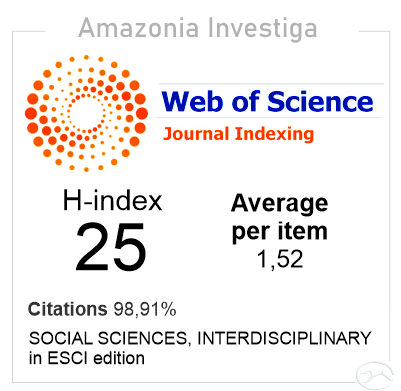







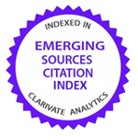
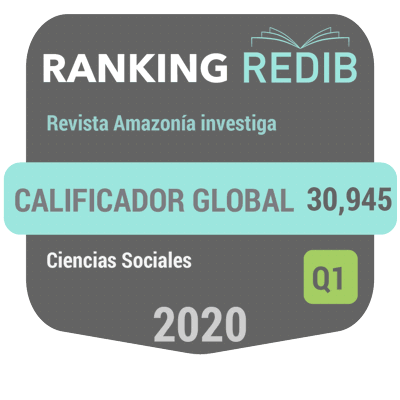

































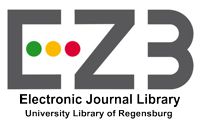





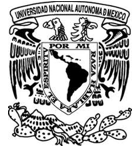











.gif)






